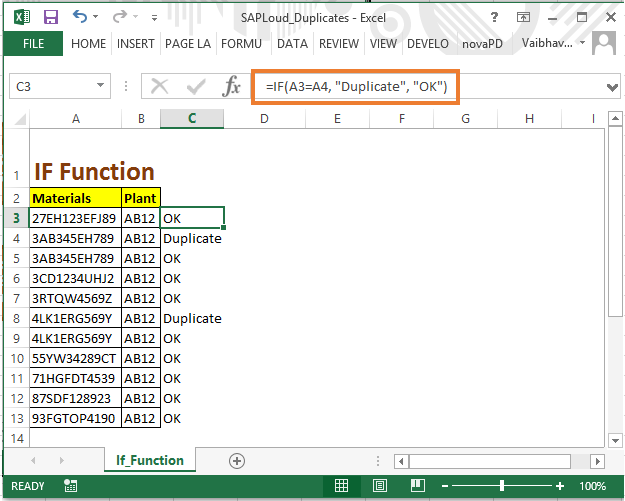Effortlessly Delete Lines in Excel with These Tricks

In today's fast-paced business environment, managing data efficiently in spreadsheets is crucial for productivity. Microsoft Excel remains a powerhouse tool for handling vast amounts of data, offering myriad functionalities to manage, analyze, and visualize information. One of the common tasks that users perform is deleting lines or rows of data, whether to clear outdated entries, correct mistakes, or simply to declutter the worksheet. This article will delve into several methods to effortlessly delete lines in Excel, ensuring your spreadsheets remain clean and organized.
The Basics of Deleting Rows in Excel

Before diving into the advanced tricks, let's cover the foundational steps to delete rows in Excel:
- Select the row or rows you wish to delete.
- Right-click and choose 'Delete' from the context menu, or use the keyboard shortcut Ctrl + - (minus sign).
- In the 'Delete' dialog box, select 'Entire row'.
💡 Note: Always ensure you're deleting the correct rows to avoid data loss!
Using the Ribbon to Delete Lines


For users who prefer using the Excel interface, the Ribbon offers an intuitive way to delete rows:
- Select the rows you want to delete.
- Go to the 'Home' tab on the Ribbon.
- In the 'Cells' group, click 'Delete'.
- Choose 'Delete Sheet Rows' from the dropdown menu.
📘 Note: The Ribbon provides visual cues which can be helpful for those less familiar with keyboard shortcuts.
Keyboard Shortcuts for Power Users

For those looking to speed up their Excel operations, here are some time-saving keyboard shortcuts:
- Shift + Spacebar: Selects the entire row where the cursor is.
- Ctrl + - (minus sign): Opens the Delete dialog box to remove the selected row(s).
- Ctrl + Shift + Plus (+): Inserts a new row above the current one, which indirectly aids in deleting rows when reordering data.
Using Filters to Delete Specific Lines


Excel’s Filter feature is perfect for deleting specific lines based on criteria:
- Select your data range or table.
- Go to 'Data' > 'Filter' to apply filters.
- Use the dropdown arrows to filter for the criteria you wish to delete.
- Select the visible rows matching your criteria and use the delete method described earlier.
Advanced Filtering with Go To Special

For advanced users, Excel's 'Go To Special' feature can pinpoint specific cell conditions:
- Select your data range.
- Go to 'Home' > 'Find & Select' > 'Go To Special'.
- Choose from options like 'Blanks', 'Errors', or 'Formulas'.
- After selection, delete as usual.
🔧 Note: Be cautious with 'Go To Special' as selecting large datasets might delete more than intended.
Using Macros for Repetitive Line Deletions

If you find yourself repeatedly performing the same deletions, consider using VBA macros:
Sub DeleteBlankRows()
Dim ws As Worksheet
Set ws = ActiveSheet
On Error Resume Next
ws.Range("A1").SpecialCells(xlCellTypeBlanks).EntireRow.Delete
On Error GoTo 0
End Sub
Consolidating and Summarizing Insights

The methods outlined here offer a range of solutions from simple point-and-click operations to more sophisticated macro use, ensuring that you can delete lines in Excel efficiently, regardless of your proficiency level. Whether you're clearing outdated data, correcting errors, or organizing a large dataset, Excel's capabilities cater to all user needs. By incorporating these techniques, you can streamline your data management process, saving time and reducing the potential for errors. Remember, with great power comes great responsibility; always double-check your selections before executing any deletion to maintain data integrity.
Can I undo the deletion of rows in Excel?

+
Yes, you can undo the deletion by pressing Ctrl + Z or going to ‘Edit’ > ‘Undo’ if you act quickly before any other action is performed. However, once the workbook is closed without saving, the deletion becomes permanent.
What’s the best way to delete rows if I have many sheets?

+
For multiple sheets, consider using a macro that runs through all sheets or group the sheets and delete rows simultaneously across them. Remember to ungroup sheets after the operation to avoid unintended changes.
Is there a limit to how many rows I can delete at once in Excel?

+
While Excel can handle deleting large sets of rows, performance may slow down or errors might occur with very large datasets. It’s advisable to delete in batches if dealing with extremely large worksheets.